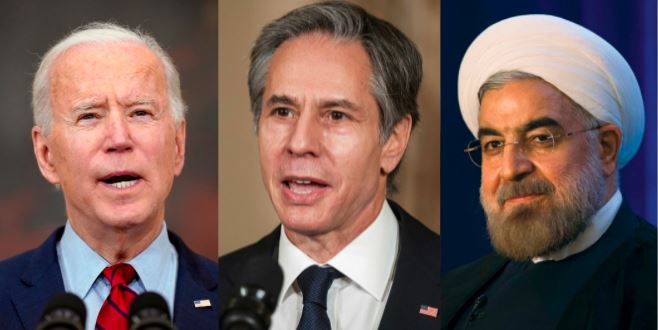The US warned on Monday that unless Iran stops enriching fissile uranium, it may acquire a nuclear bomb in “a matter of weeks.” Former US President Barack Obama’s brainchild, the 2015 Iran Nuclear Deal, also known as the Joint Comprehensive Plan of Action, has long been a top priority for Biden. And to push his political agenda he has resumed talks with Iran at a time when Iran is unilaterally pushing through with its nuclear proliferation.
In exchange for relief from international sanctions, Iran agreed to limit its nuclear development under the JCPOA. Since the United States withdrew in 2018, it has been dead in the sea. Iran began refusing to comply with the agreement’s uranium enrichment limitations after President Donald Trump reemployed sanctions. But since the Biden administration has come to power in the US it has been pushing for the renewal of the JCPOA deal. But the latest development shows that by continuing to host talks with Iran over the nuclear deal Biden has only emboldened Iran’s influence in the region and if the deal goes through it could even legitimize Iran’s upcoming nuclear prowess.
“It remains unclear whether Iran is willing and prepared to do what it needs to do come back into compliance,” US Secretary of State Antony Blinken said on Monday. “Meanwhile, its program is galloping forward. The longer this goes on, the more the breakout time gets down. It’s now down, by public reports, to a few months at best. And if this continues, it will get down to a matter of weeks.”
In April, the US and Iran held indirect negotiations in Vienna to see if they could both return to compliance with the JCPOA. The fifth round of discussions ended on June 2nd, and diplomats say a sixth session could start on Thursday. That would leave only eight days to save the deal before Iran’s presidential election on June 18, when a new hard-line leader is anticipated to be elected.
Gulf allies worry that the negotiations would focus solely on Iran’s nuclear programme, ignoring Tehran’s ballistic missile development and regional intervention through proxy militias in Iraq, Yemen, and elsewhere. The International Atomic Energy Agency (IAEA) suspended some inspections of Tehran’s nuclear installations in February. The agency reached a three-month agreement that allows it to operate with limited access. The agreement was extended until June 24 in late May, but time was running out, according to IAEA Director Rafael Grossi.
“I can see this space narrowing down,” he said. “I hope we are not going to see our … inspection capacities curtailed anymore. We cannot limit and continue to curtail the ability of the inspectors to inspect and at the same time pretend that there is trust. This is where everything you do with any country is interconnected. For me, the road to trust goes through information, clarification, inspections and full transparency. We have a country that has a very developed and ambitious nuclear program which is enriching at very high levels … very close to weapons grade.”
The issue with Blinken’s admittance is that even though there is now confirmation that Iran can develop a nuclear weapon in a “matter of weeks, the talks on JCPOA are continuing as planned. Joe Biden is adamant to resume the deal with Iran even though they have breached every threshold that the original agreement contained. Getting out of the talks after criticizing Donald Trump for pulling out of the deal and then vehemently pushing for it since coming to power would be a political embarrassment for the Biden administration, on the other hand, if Biden administration does go through with the deal, at the time when Iran has achieved nuclear proliferation, it could amount to no less than political suicide.
